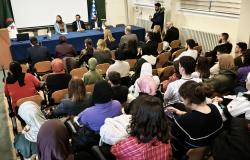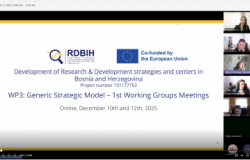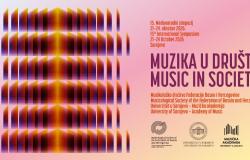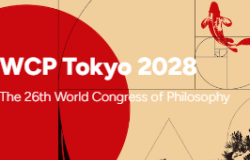Presentation of the study “Keeping the Youth in Sarajevo Canton: Analysis of Determinants and Proposed Strategic Measures”

HOW TO MOTIVATE YOUNG PEOPLE TO STAY IN BOSNIA AND HERZEGOVINA
The aim of the study “Keeping the Youth in Sarajevo Canton: Analysis of Determinants and Proposed Strategic Measures” is to look at the perception and ambitions of young people regarding leaving BiH, focusing on Sarajevo Canton. In addition, guided by the obtained results, the goal is to create proposals for potential strategic solutions that could influence young people to stay in Bosnia and Herzegovina and especially the Sarajevo Canton. The focus is on push factors - those present in the home country that are presumed or shown to significantly affect the emigration aspirations of young people today or have caused their emigration in the past. The research team of the Academy of Sciences and Arts of BiH has done extensive research, and the financier is the Ministry of Education, Science and Youth of Sarajevo Canton.
The study was conceived and structured within the activities of the Ministry of Education, Science and Youth of Sarajevo Canton, with the aim of managing and directing the process in Canton. The focus is on the younger generations and on reversible migration processes, identifying and positioning factors that influence the return of young people. Taking into account relevant factors and adequately managing them should result in a youth retention strategy in the Canton and BiH. The Study defines five basic guidelines on which future strategies and policies towards young people must focus, and they are:
a) Youth employment
b) Quality of education
c) Improving the quality of life
d) Encouraging youth activism
e) Creating a positive narrative in public space.
Qualitative analysis in this study was done by the method of in-depth interviews and organizing focus groups. The semantic analysis of the interviews pointed to the elementary motives of migration: inequality, education system, non-transparency, hopelessness, lack of interest, mistrust, lack of independence, politics and overall rhetoric in public space. The focus group content analysis method pointed to similar terms around which focus group discussions are concentrated: work, school, employment, change, departure, living, education. Qualitative analysis done within this study indicated certain differences within the younger generations in relation to the wider population. This also implies different approaches by governments at different levels, based on the realization that young people are innovative, adventurous, selective in education and quite apolitical. Quantitative research was conducted on a sample of 442 respondents, of which 256 are young people in Sarajevo Canton. A total of 70% of young people expressed positive intentions to leave the country, of which 34% permanently and 36% temporarily. Young people show a greater tendency to leave compared to people over the age of 35. Only 9% of young people, compared to 25% of people over the age of 35, have no intention of leaving BiH.
The presentation of the Study was held at the Academy of Sciences and Arts of Bosnia and Herzegovina on 25 June 2020.
The study was presented by members of the research team:
Academician Muris Čičić,
Prof. Dr. Melika Husic-Mehmedovic,
Prof. Dr. Maja Arslanagic-Kalajdzic,
Prof. Dr. Lejla Turulja,
Prof. Dr. Selma Kadić-Maglajlić and
Mr. Sci. Alina Trkulja.
The study is available on the ANUBiH website
https://publications.anubih.ba/handle/123456789/650.








